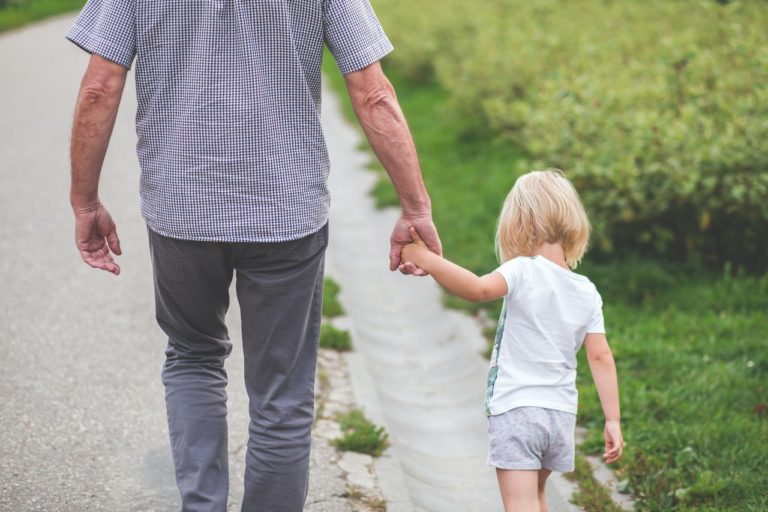The most important thing to keep in mind is that you are not alone and that there are resources at your disposal, both practical and professional, to help you feel confident about your plan to improve or maintain a healthy mental wellbeing.
1. Maintain a Routine
One of the best things that you can do to preserve your mental wellbeing is to stick to a routine. For example, if you’re used to going to the gym before work, try to wake up early and get an at-home workout in before you go to work or start your workday from home. Maintaining as much normalcy as possible with your daily routine can help keep your mood as lifted as possible and prevent boredom and distress from taking over.
If you have children at home, you should also implement a structured schedule for them so that they know what your expectations are. Try to limit as much screen time as possible, encourage outdoor play time and incorporate learning activities throughout the day.
2. Get a Good Night’s Sleep
This suggestion goes hand-in-hand with sticking to a routine. When routines have been disrupted, it can be easy to go to bed or sleep in later than you typically would. Breaking your normal sleep routine can have negative effects on your overall mental wellbeing, so you should try to stick to your typical schedule as much as possible or if your previous sleep habits were not healthy, let the current disruption in routine be the perfect opportunity that you take to hit the reset button and develop better sleep habits. Additionally, it is well documented that screen time (computers, televisions, phones) spent right before going to bed can be detrimental to falling asleep due to blue light emissions. If you find yourself having trouble falling asleep, you may find reducing your screen time before bed or picking up a pair of blue-light filtering glasses are very helpful in addressing difficulty falling asleep.
3. Spend Time Outside
Unless health officials give you explicit instructions to stay in your home no matter what, try to get outside periodically throughout the day. This could involve going out in your backyard, taking a walk around the block, or in a nearby park. Many of us that have grown up in the Upstate NY area have taken for granted the number of impressive protected forests, state parks and county trails that are interspersed across our region!
Being outside also helps to promote higher vitamin D levels, a vitamin the body makes when skin is directly exposed to the sun. Many people are deficient in vitamin D, so exercising outside can be a great way to correct that.
4. Leverage the Power of Technology
Loneliness was already a growing concern prior to the COVID-19 pandemic, so you can imagine how particularly difficult a time the current environment is for many. Fortunately, advancements in technology have made it much easier to connect with others without having to physically be in contact with them. Reaching out to loved ones via virtual video chat technology such as Facetime, Messenger, Skype and Whatsapp can go a long way toward reducing feelings of loneliness and anxiety, and to supplement your social life while you’re quarantining or social distancing. If you’re feeling down, a video call to friends and family can be a great pick-me-up!
5. Don’t Obsess over News & Social Media Opinions
It can be easy to become overwhelmed by watching the news and reviewing the updates of the COVID-19 situation. While it’s important to be informed of the situation, you should not obsess over the news or your social media feed. For example, instead of monitoring these all day from home, consider checking for updates once in the morning and once at night. The reality is, even medical and economic experts are still trying to get their minds around all the considerations and factors brought about by the pandemic. Sometimes, taking a deep breath, turning off your device and reminding yourself that we are all in this together is more helpful than trying to sort through everyone’s opinions or adding your own opinion to the mix which leads us to our last recommendation, namely, practicing positivity and gratitude.
6. Practice Positivity & Gratitude
If you’ve ever read the book or seen the old Disney movie, Pollyanna, you may recall that Pollyanna made an impact in many of the village people’s lives around her by teaching them the glad game. In short, the glad game involved taking any situation that you were finding yourself discouraged or frustrated by and finding something to be glad about in it.
Unfortunately, there seems to be a tendency in us to focus on the negative and to look for empathy for our own situation by complaining about various aspects of life around us. However, taking five minutes a day to write down the things that you are grateful for has been proven to lower stress levels and can help you change your mindset from negative to positive. While you’re quarantining or social distancing, you may find that taking time to practice positivity and express gratitude may be the perfect therapy for your mental disposition.
7. Don’t be Afraid to Seek Professional Help
Fortunately, there are also many professional resources available to helping you identify and implement solutions for mental wellbeing. These resources include, but are not limited to your employer’s EAP program, your health insurance plan, as well as federal and state resources such as the U.S. Substance Abuse and Mental Health Services Administration, NYS Office of Mental Health or the National Institute of Mental Health.
Always remember that you are not alone! The feelings that you have are shared by many others and whether through a virtual video chat with a loved one, a hike in a park, or with a trained professional, help is close at hand!



